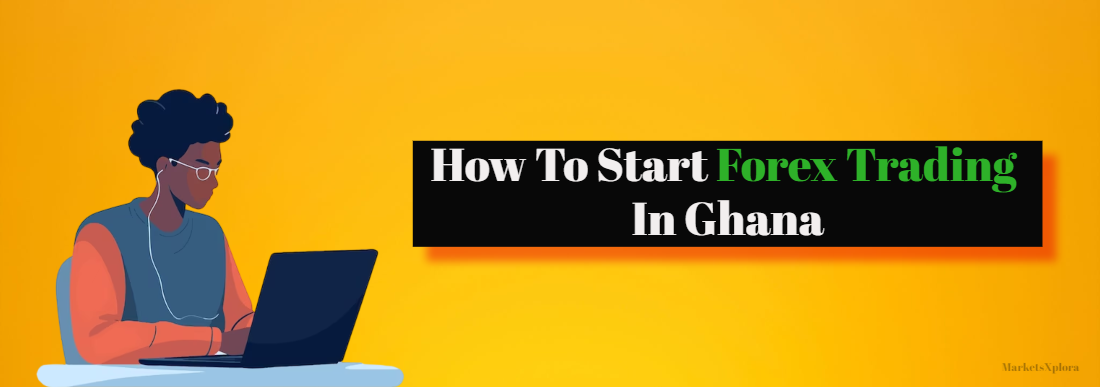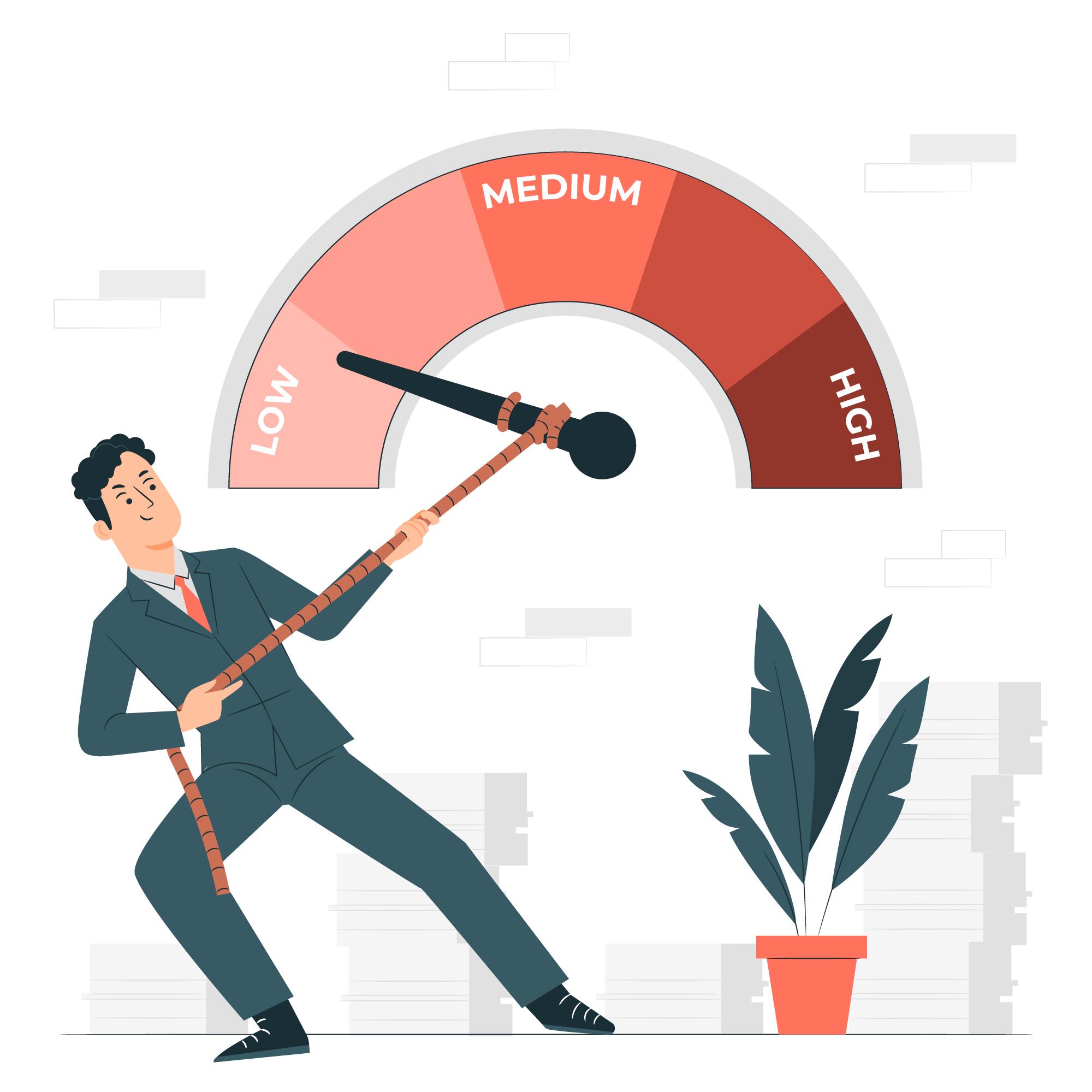
Forex trading, or foreign currency exchange trading, has grown enormously in Ghana over the last decade. Attracted by the potential to profit from fluctuating currency prices, more Ghanaians are now seeking to enter the global forex market which trades over $6.6 trillion daily.
However, diving into forex trading without sufficient education and a thoughtful plan typically ends badly. Sustained success requires developing core competencies around analysis, risk management, and disciplined execution.
This strategic beginner’s guide will explain step-by-step how Ghanaians can start forex trading and attain success.
How To Start Forex Trading In Ghana
1) Choose a Reliable Forex Broker

Selecting the right forex broker as a Ghanaian trader must balance proper regulation and localization. Ideal brokers will hold respected licenses from jurisdictions like the UK’s Financial Conduct Authority (FCA) or Cyprus Securities and Exchange Commission (CySEC) while also offering dedicated account types, customer support and payment channels familiar to those in Ghana.
Our top best Ghana Forex brokers reliably check all the boxes across criteria including:
- Tier-one global license
- Integration of mobile money and convenient payment options
- Secure client fund segregation from company assets
- Competitive trading conditions like close-to-interbank spreads from 0.0 pips
- Responsive multilingual customer service teams supporting beginners
Demo trading is imperative — test connectivity, account dashboards and placement of live orders. Gauge if support teams quickly grasp your needs as a Ghanaian trader. Vetting one’s brokerage sufficiently upfront will pay dividends through a trusting, productive relationship in years to come.
2) Develop a Trading Plan
A trading plan is essential for maintaining focus, discipline and realistic objectives as you venture into forex. First, establish reasonable goals and growth expectations for your account size over specific timeframes – 2-3% monthly returns are a sustainable target for beginners. Remember that profitability requires an observant, long-term commitment spanning months to years.

Determine an appropriate level of leverage based on your capital and risk appetite. Using 50:1 leverage on a $1,000 account is imprudent. Typical advice suggests 1:20 at most. Note that while leverage amplifies gains, it also compounds losses and introduces major risk if misused.
Contemplate your trading style as well. Will you be scalping the 1 minute chart for small, frequent profits or taking longer term swing trades over hours and days? Both introductory education and demo trading can clarify which approach aligns best. Many Ghanaian traders favor trading sessions when both London and New York markets overlap for optimal liquidity.
Regarding currency pairs, concentrate efforts mainly on the 7-8 majors and minor pairs where technical levels and fundamentals can be easily researched. Exotic crosses featuring the Cedi or other emerging market currencies add unpredictability – avoid until skills improve substantially. Again, paper trade various pairs with virtual funds first before staking real capital.
Commit these key elements to a written trading plan. And revisit it regularly to assess what revisions align with evolving skills and market conditions as you undertake your forex journey.
3) Start With a Demo Account & Sufficient Education
A prudent way to begin real money forex trading is opening a practice demo account with virtual funds at your selected brokerage. Most brokers provide $100,000 or more to simulate live markets. This allows you to execute sample trades and test strategies without financial risks while you build skills.
Spend several months paper trading while dedicating time daily to consuming educational forex content. Study training materials covering technical and fundamental analysis to understand drivers behind currency price movements. Grow adept at interpreting charts, trends and indicators as well as correlating news events. An observant student can emerge skilled enough to spot high probability trades.
While demo trading, ensure you mimic habits required for live trading success. For example, execute a set number of trades each week, analyze risk-reward ratios, record detailed journal entries on market rationales, and reflect on performance. Treat the demo environment seriously.
Only when consistently profitable on paper across months should you add real capital. Effective simulation trading accompanied by an extensive education gives Ghanaians the best opportunity to trade confidently. It allows you to eliminate rookie tendencies before they prove costly. So invest heavily in knowledge and virtual skills development from the start.
4) Manage Risk Appropriately
Success in forex trading heavily relies on managing risks appropriately. Always use stop-loss orders on every trade to automatically exit your position before losses spiral. As an initial guideline, set stop losses 1-2% away from your entry price. Trail these stops methodically as the trade hits profit targets.

Additionally, avoid overleveraging accounts, especially while learning. The urge for quick profits may entice some to use 50:1 leverage or higher which is disastrous for beginners. Risk only 1-5% of account value per trade until consistent returns warrant more aggressive position sizing. Always weigh upside profit potential against downside possibilities.
Lastly, prolonged trading success requires strict adherence to a strategic system over relying purely on emotions. Before entering any trade, ensure it aligns logically with overall plans—record details like catalysts, entry levels, risk-reward ratios and exit points in a journal. Continually refine your process based on data rather than impulsive trades.
The euphoria of wins or agony from losses can derail even seasoned Ghanaian traders without diligent risk and money management. But cultivating disciplined behaviors through proven tactics outlined here will set you firmly on the path to trading longevity. Stay the course.
5) Go Live With a Small Account
After consistently executing a sound trading plan on demo, it may be time to go live. Start by funding your live account with enough excess capital to weather inevitable drawdowns as you further learn. Expect losses while focusing on sustainability.
Initially trade micro and mini lots to keep position sizing small, risk low at 2-3% per trade and continue gathering experience. Work through market volatility in real market conditions. Record screen time for continued learning. And journal extensively — analyzing both winning and losing trades after closing positions.
Study your metrics and equity curve, identifying when and why trades succeed or fail. Look for patterns in your analysis and execution. Assess weaknesses rationally so you can incrementally improve. With further screen time, begin progressively sizing positions while monitoring risk metrics closely.
Remember that longevity as a trader is the objective. By funding small to begin live trading, Ghanaian traders can iterate through market exposure at an intentional, calculated pace. Managing risk first and foremost will set one up to eventually expand account size. Proceed systematically. The merits compound over a lengthy horizon.
6) Develop Healthy Trading Habits
Cultivating positive trading habits early on is pivotal for longevity as a trader.
For instance, properly moving stops to breakeven after being up 2% on a EUR/USD trade demonstrates smart money management. This locks in profit off the table early and gives the rest of the position room to run. Similarly, closing half the position at a 1:2 risk-reward ratio follows principles that seasoned traders repeatedly follow.
On the emotional side, after 2-3 losing trades, a Ghanaian trader may feel tempted to overtrade and revenge trade to make up the loss quickly. However, the strategically sound move is to stop trading for the day, clear your head, and come back tomorrow with a blank slate. Sticking to your plan demonstrates maturity through the ups and downs of trading.
In terms of review, backtesting a trading strategy like trading breakouts from a 20-day high can quantify performance based on historical data. Tweaking criteria such as breakout candle size or adding a relative strength index filter demonstates refinement. Keep track of figures like profit factor, win rate percentage and risk multiples.
Starting Forex Trading In Ghana – Conclusion
In summary, Ghanaians can increase their forex trading success by:
- Choosing regulated brokers that support Ghana-based traders
- Building market knowledge and technical skills before going live
- Starting with small capital and position sizes
- Implementing savvy risk and money management
- Reviewing metrics and behaviors to refine your edge
Additionally, connecting with other forex traders in Ghana through communities and forums can provide motivation and alternate perspectives. Savvy traders are continually learning – discuss ideas, but avoid following others’ trades directly without experience.
While the path requires patience and grit, the rewards of profitable forex trading are attainable for Ghanaians with the drive to immerse themselves in the markets proactively. Manage risk first, master chart and fundamental analysis, and execute with clear processes over emotions. Doing so can lead to supplemental income on a steady part-time basis.
FAQs
- What amount of starting capital do you recommend for beginners?
I’d recommend starting with at least $500-1000. This allows you to trade micro lots and absorb some potential losses as you gain experience. Start small but with enough to facilitate real trading activity.
- How much time per week should I allocate for forex if doing this part-time?
Aim for 10-15 hours a week if pursuing trading part-time. This allows time to apply analytical techniques, execute a plan, review metrics, improve weaknesses, and refine your knowledge. Consistency matters most.
- What timeframe charts provide the easiest price action trading?
The one hour and 4 hour charts balance ease of use with trading frequency for beginners. Daily or lower 15 minute timeframes can be more complex initially. Find a comfortable yet active chart timescale.
- Is forex trading legal and safe for residents in Ghana?
Yes, individual forex trading is legal in Ghana. Registered brokers must submit audit reports regularly to the SEC to remain compliant and protect traders.
- What funding payment methods can I use to deposit trading capital safely?
Brokers support local bank transfers, mobile money, debit cards and electronic wallets offered by Zeepay or Nsano for Ghanaian clients to securely fund accounts.
- How are forex trading profits taxed in Ghana? Do requirements change frequently?
You must declare profits when filing taxes. As of 2020, income above GHS 10,000 gets taxed 15% plus required social security contributions. Monitor for tax policy changes annually.
